Plenary and Keynote Speakers
9th International Conference of Theoretical and Applied Nanoscience and Nanotechnology (TANN 2025)
We are pleased to announce the plenary and keynote speakers for the 9th International Conference of Theoretical and Applied Nanoscience and Nanotechnology (TANN 2025) :

Prof. Rupert Oulton
Imperial College London, UK
Plenary Speaker
Rupert Oulton is a Professor of Physics at Imperial College London, and Deputy Head of the Department of Physics. Having studied for a PhD in Physics at Imperial, he moved to UC Berkeley to research Nanophotonics in the group of Xiang Zhang. Here, he demonstrated some of the first lasers smaller than the diffraction limit of light using plasmonics to create tightly localized optical fields. Returning to Imperial after 5 years in California, Prof Oulton won a prestigious EPSRC Fellowship and Leverhulme Lectureship. Prof Oulton’s research now focusses on the physics and engineering of light matter interactions using nanophotonics with applications in quantum optics, photo catalysis and nonlinear optics.
Topic of talk: Exploiting Nanoscale Optics Fields to Control Light-Matter Interactions with Applications Spanning Quantum Optics to Photo-Catalysis
![]() View Abstract
View Abstract
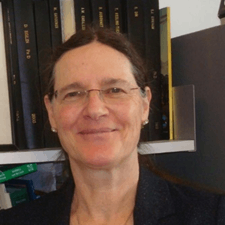
Prof. Carole Perry
Nottingham Trent University, UK
Plenary Speaker
Carole Perry obtained her undergraduate and DPhil research degrees in chemistry from the University of Oxford, UK where she also held an independent junior research fellowship. She has held permanent academic positions at Brunel University and Nottingham Trent University where she is currently a distinguished research professor. She has held fellowships/ visiting professorships in Israel (Weizmann Institute), France (Université Pierre et Marie Curie), Germany (KIT) and USA (Suny, Buffalo and Radcliffe Institute, Harvard). Her research interests lie at the interface between biology, chemistry and physics.
Topic of talk: Biology as Inspiration for Nanoscale Materials Property Tuning
![]() View Abstract
View Abstract

Prof. Ian White
University of Bath, UK
Plenary Speaker
Ian White was educated at the Belfast Royal Academy and Jesus College, Cambridge, where he gained his BA and PhD degrees in 1980 and 1984.[6] He was then appointed a research fellow and assistant lecturer at the University of Cambridge before becoming professor of physics at the University of Bath in 1990. In 1996 he moved to the University of Bristol and became head of the Department of Electrical and Electronic Engineering in 1998, before returning to the University of Cambridge in October 2001.
While in Cambridge he served in the roles of master of Jesus College, head of the School of Technology, and pro-vice-chancellor for institutional affairs. He was a key member of the UK-China Global Issues Dialogue Centre at Cambridge, which was funded by Huawei and active in the 2010s. Critics attributed White’s involvement with the centre as a contributing factor to Cambridge’s silence over the Chinese government’s increasing encroachment on academic freedom in the late 2010s.[7][8]
In 2018, White retired from the mastership of Jesus College to become vice-chancellor of the University of Bath. He accepted a salary that was about half of his predecessor’s, a move praised by student and staff unions as a positive development in tackling excessive pay gaps in academia.[9]
Topic of talk: Trends in Quantum Networking using Continuous Variable Modulation Techniques![]() View Abstract
View Abstract
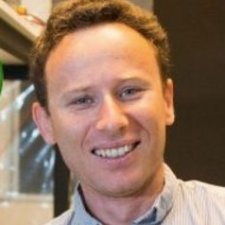
Prof. Igor Aharonivich
University of Technology Sydney, Australia
Keynote Speaker
Professor Igor Aharonovich received his PhD in 2010 from the University of Melbourne and spent two years in Harvard as a postdoctoral researcher in the group of Prof Evelyn Hu. In 2013 Igor returned to Australia and joined the University of Technology Sydney (UTS) where is currently a full Professor and the UTS node director of the ARC Centre of Excellence for Transformative Meta-Optical Systems.
Igor’s group is focusing on exploring single emitters in wide band gap semiconductors, such as diamond and more recently hexagonal boron nitride. His group is also interested in innovative approaches for nanofabrication of nanophotonics devices for quantum circuitry. But most importantly – Igor’s group has members from 11 different countries which forms a vibrant and a dynamic environment.
Igor received numerous international awards and recognitions including the 2017 Pawsey medal from the Australian Academy of Science, 2019 CN Yang Award – honors young researchers with prominent research achievements in physics in the Asia Pacific region and the 2020 Kavli foundation early career lectureship in materials science. He was also elected as a fellow of OPTICA (class 2021) and SPIE (2023).
Topic of talk: Hexagonal Boron Nitride - An Intriguing Platform For On Chip Quantum Technologies![]() View Abstract
View Abstract
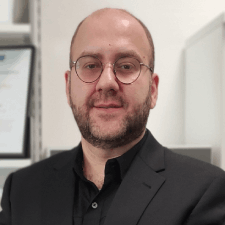
Prof. Mohsen Rahmani
Nottingham Trent University, UK
Keynote Speaker
Mohsen Rahmani is a professor of optics and photonics and the leader of the advanced optics and Photonics laboratory at Nottingham Trent University (NTU), in the UK. He obtained his PhD from the National University of Singapore in 2013, followed by a postdoc fellowship at Imperial College London and the Australian Research Council Early Career Fellowship at the Australian National University. In 2020, he joined NTU via the prestigious Royal Society Wolfson Fellowship. Shortly after moving to the UK, he was also awarded the UK Research and Innovation Future Leaders Fellowship. Recently, he has secured an ERC Consolidator Grant. His research activities span over light-matter interactions with nanometre-scale particles for applications in flat optics, near-infrared imaging, bio-sensing, and reconfigurable optics. He is the recipient of several prestigious awards and prizes, including the Australian Eureka Prize (Australian Oscar of Science), the Early Career Medal from the International Union of Pure and Applied Physics, and the Australian Optical Society Geoff Opat Award. Professor Rahmani has delivered 40+ invited talks, seminars and keynotes at international conferences and has published more than 80 peer-reviewed journal papers (H-index=43). He is the past chair of the IEEE Nanotechnology Chapter across the UK and Ireland section and a distinguished lecturer for IEEE Nanotechnology Council 2024.
Topic of talk: Engineered Nanoscale Particles: Building Blocks of Tomorrow’s Optical Technologies
![]() View Abstract
View Abstract
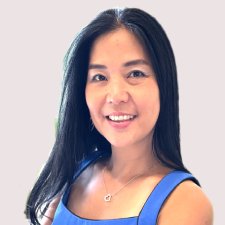
Dr. Rachel Won
Nature Photonics, UK
Keynote Speaker
Rachel Won is an International Editor of Nature Photonics. She joined the journal in June 2006 as one of the four Founding Editors. Before that, Rachel worked for Aston University’s Business Partnership Unit in Birmingham, UK, as a Medici Fellow, commercializing the research output of the university, particularly that of photonics research. She obtained her PhD in microwave photonics and nonlinear optics as a member of Aston’s Photonics Research Group. She worked for Philips Optical Storage in Singapore as an Optics Engineer after completing her Master’s degree study in Nanyang Technological University of Singapore doing research in optical fibre sensing. She holds a Bachelor’s degree from the National University of Malaysia. She is a Fellow of OPTICA and SPIE (the International Society of Optics and Photonics).
Topic of talk: Publishing in Nature Journals
![]() View Abstract
View Abstract
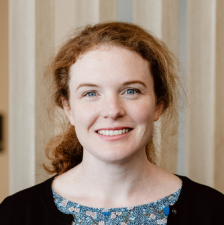
Prof. Hannah Joyce
University of Cambridge, UK
Invited Speaker
Hannah Joyce is Professor of Electronic and Photonic Engineering at the University of Cambridge. She obtained her BSc and BE degrees from the University of Western Australia in 2005 and her PhD from the Australian National University in 2010. She then joined the University of Oxford as a postdoctoral researcher. In 2013, she established her own research group in the Department of Engineering at the University of Cambridge. Her research interests span low-dimensional semiconductor materials, the development of new nanomaterial-enabled optoelectronic systems, and terahertz photonics. She is the recipient of an IEEE Photonics Society Young Investigator Award, a Philip Leverhulme Prize in Engineering, and an International Symposium on Compound Semiconductors/Compound Semiconductor Week Young Scientist Award.
Topic of talk: High-throughput Approaches for Engineering Nanodevices
![]() View Abstract
View Abstract
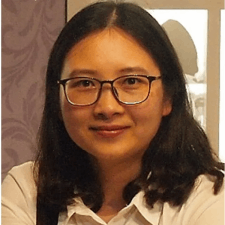
Assoc. Prof. Ziyuan Li-Beijing
Beijing Institute of Technology (BIT), China
Invited Speaker
Dr. Ziyuan Li is currently the associate professor at Beijing Institute of Technology (BIT). She received her bachelor’s degree from BIT in 2009 and PhD degree from the University of New South Wales in 2013. She joined The Australian National University in 2014 and received the Australian Research Council Discovery Early Career Research Award in 2018. She then joined BIT in 2022. Her research interests are in III-V semiconductor optoelectronic devices such as photodetectors, solar cells and light-emitting diodes. She has published over 60 SCI journal papers, 2 book chapters, 4 patents, and delivered invited talks at several international conferences.
Topic of talk: III-V Semiconductor Based Nanostructures for High Performance Infrared Photodetection
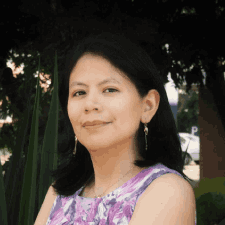
Dr. Rocio Camacho Morales
The Australian National University, Australia
Invited Speaker
Dr. Rocio Camacho Morales is a postdoctoral fellow at The Australian National University (ANU), where her research spans several branches of optics, including nanophotonics, optical metasurfaces, and nonlinear frequency generation. She is actively engaged in industry collaborations and research projects focused on infrared up-conversion imaging using nonlinear metasurfaces.
Dr. Rocio has authored and co-authored over 20 peer-reviewed papers in high-impact journals, including Advanced Materials, Advanced Photonics, and Light: Science & Applications. She has also contributed to other publications, including newsletters and a recently published book chapter titled
Nonlinear Phenomena Empowered by Resonant Dielectric Nanostructures (Elsevier, 2024). She has disseminated her research across various media outlets and was honoured with the Warsash Science Communication Prize in Optics in 2022.
Dr. Rocio received her Bachelor of Science in Physics at the National Autonomous University of Mexico, her Master of Science from the Ensenada Centre for Scientific Research and Higher Education in Mexico, and her PhD in Physics from the ANU.
Topic of talk: Metaphotonics for Advanced Imaging Technologies
![]() View Abstract
View Abstract
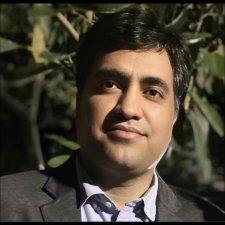
Assoc. Prof. Gaurav Sapra
Panjab University, India
Invited Speaker
Dr. Gaurav Sapra is an Associate Professor in the Department of Electrical and Electronics Engineering at UIET, Panjab University, Chandigarh, India. He holds a PhD in Engineering and Technology from Panjab University and has over 15 years of experience in academia and research. His research expertise lies in sensors, nanotechnology, energy harvesting and biomedical devices. He has successfully led ten funded research projects, holds four granted national patents and is currently engaged in two innovative research projects.
Dr. Sapra is the principal investigator from Panjab University for UKIERI and SPARC collaborative research projects with Nottingham Trent University, UK, focusing on developing a self-powered wearable biosensor for the non-invasive detection of c-reactive protein in sweat. Additionally, he serves as co-principal investigator in a DST Technology Development Program aimed at designing a cost-effective indigenous vision machine for small and medium-scale industries.
His academic contributions include over 50 peer-reviewed journal and conference publications, authorship of a book on ‘Analog Electronics’ and editorial work on a volume of the IOP Conference Series: Materials Science and Engineering for IC-MAME 2021. His research excellence has been recognised through multiple national and state-level awards.
Beyond research, Dr. Sapra is deeply committed to STEM education and outreach. He mentors government school students in Chandigarh through Igniting Young Minds, a Panjab University initiative that fosters scientific curiosity and social awareness. As the coordinator of the AICTE IDEA Lab, Panjab University, he actively promotes hands-on learning, innovation and product development.
Topic of talk: Flexible Carbon Nanotube Based Sensing Applications
![]() View Abstract
View Abstract
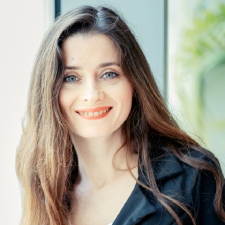
Prof. Alina Karabchevsky
Lancaster University, UK
Invited Speaker
Professor Alina Karabchevsky is the Director of the Integrated Photonics Laboratory at Ben-Gurion University (Israel) and a Visiting Professor at Lancaster University (UK). Her research focuses on light-matter interactions on optical chips, pioneering advancements such as single-photon sources and “doctor-in-your-pocket” chip-based devices. She leads the Integrated Photonics track and teaches graduate and postgraduate courses, including Introduction to Signal Processing, Introduction to Fiber Optics, and Integrated Photonics.
Over the past nine years, Professor Karabchevsky has secured over $7 million in research funding from the Horizon 2020, ISF, BSF, DFG, Ministry of Science-India, Industry, British Embassy and other sources. She holds more than 14 patents for her inventions. She has authored over 150 publications and recently edited the Elsevier book “On-Chip Photonics: Principles, Technology, and Applications” (2024), further solidifying her leadership in the field.
Professor Karabchevsky founded the SPIE students chapter the first in the Middle East, in November 2010, a member of IEEE (since 2020) and IPS (since 2019). She is Chair of the Women in Engineering Affinity Group, IEEE Section (since 2020). She has various editorial roles, including Editor for Advanced Photonics Research Journal (Wiley) and Guest Editor for Sensors Journal (since 2020). She has received numerous awards, including 2019 and 2017 recognized as one of the Top 100 Official authors in Physical Sciences of Scientific Reports journal, 2014 ‘Brilliance in Research’ award of Optoelectronics Research Centre, University of Southampton, UK, 2012 President’s Award for ‘Outstanding Woman in Science,’ which included a monetary prize of $45,000, 2011 Best Paper at the SPIE Optics and Photonics Conference in San Diego.
Topic of talk: Reconfigurable Integrated Photonics for Next-Generation Optical Computing and Quantum Technologies
![]() View Abstract
View Abstract
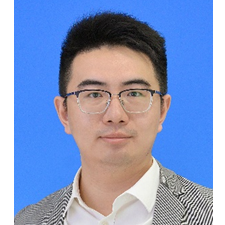
Assoc. Prof. Rui Zhou
Xiamen University, China
Invited Speaker
Dr. Zhou Rui, an Associate Professor of Engineering (Senior Engineer) from Xiamen University, holds a Ph.D. in Chemical Engineering from the National University of Singapore (NUS) with a minor in Technology Management. He received his Bachelor in Engineering from Zhejiang University, where he also completed a minor in Innovation and Entrepreneurship Management at Chu Kochen Honors College. Specializing in laser advanced manufacturing, equipment development, and technology management, he currently serves as Deputy Director of the Domestic Cooperation Office at Xiamen University, Deputy Director of the Fujian Provincial Precision Manufacturing Technology Development Base, and Deputy Director of the Engineering & Industrialization Center at Pen-Tung Sah Institute of Micro-Nano Science and Technology in the same university. He was continuously listed in Elsevier/Stanford University’s World’s Top 2% Most Influential Scientists 2023 and 2024, selected as a Newton Fund Innovation Leader by the Royal Academy of Engineering (UK) and the Chinese Academy of Engineering, and awarded the 2023 Global Outstanding Engineer Competition Silver Medal. He has authored over 70 peer-reviewed research papers in journals such as Opto-Electronic Advances, Optics Express, Journal of Manufacturing Processes, and Surface & Coatings Technology, and holds 20+ granted patents internationally. His research bridges applied science and industrial implementation in micro/nano-manufacturing technologies, emphasizing the translation of theoretical advancements into practical engineering solutions.
Topic of talk: Enhanced Functional Surface Induced by Laser Micro/Nano- Manufacturing for Environmental Applications
![]() View Abstract
View Abstract
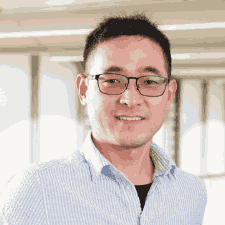
Assoc. Prof. Lei Xu
Nottingham Trent University, UK
Invited Speaker
Lei Xu is an Associate Professor in Electrical Engineering at the Department of Engineering in the School of Science & Technology, Nottingham Trent University. He obtained his PhD in optics from Nankai University in 2014, followed by postdocs at Nankai University, Australian National University, and University of New South Wales. In 2020, Dr Xu joined Nottingham Trent University, where he co-developed the Advanced Optics and Photonics Laboratory and Group. His research focuses on exploring and engineering light-matter interactions at subwavelength scales for applications in nonlinear nanostructures and metasurfaces, infrared imaging technology, and reconfigurable meta-devices. He has published over 70 peer-reviewed journal articles in the optics and photonics field, cited over 4500 times overall (H-index of 36). He runs active collaborations with Industry and Academia, through which he has filed 2 patents. He served as the vice-chair (2021-22) and chair (2023 – 2024) of the IEEE Nanotechnology Council across the UK & Ireland section.
Topic of talk: Metasurfaces for Infrared Imaging Applications
![]() View Abstract
View Abstract
Registration fee includes the following:
- Publication of 1 accepted paper in the proceedings. Publication of each additional paper requires a £250 Pound registration
- Buffet lunch for each day of the conference
- 2 coffee breaks for each day of the conference
- 1 banquet dinner OR cruise tour
Important information for accompanying person(s): Please be informed that the accompanying person can NOT be a co-author.
Co-authors, regardless if 1 author is attending, must pay the full registration fee.
The accompany person fee is only for spouses and/or children. Please contact us if you are unsure.
Virtual registration fee includes the following:
- Publication of 1 accepted paper in the proceedings. Publication of each additional paper requires a £150 Pound registration
- Access to all the sessions of the conference